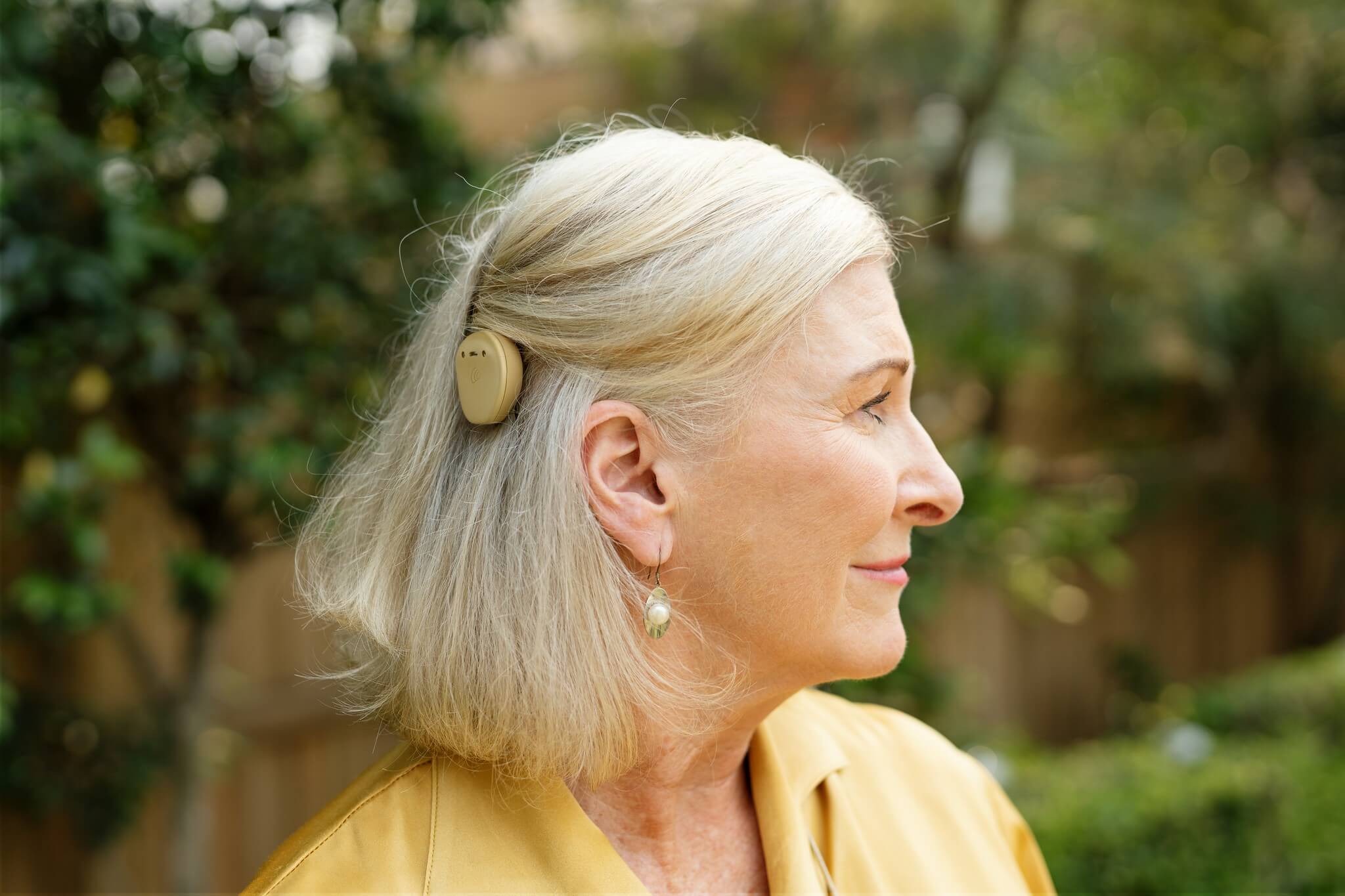
Cochlear Implants
Life with Cochlear Implants
"It got activated and I remember we had a 4th of July get together with a bunch of friends and I was sitting around a table and everybody was talking and I was just having a great time listening to everybody and hearing what they had to say."
Deb A., Cochlear™ Nucleus® recipient
Consider Cochlear Implants
Cochlear implants are often a next solution for our patients, when their hearing aids are not providing enough assistance. Many people start by wearing two hearing aids. However, as hearing loss progresses, you may need something more. To improve your hearing performance and help you understand more clearly, you may need to consider a solution that helps you hear your best with both ears.1,2 For many, a cochlear implant in one ear and a hearing aid in the other can provide a richer more natural hearing experience.1 This combination is referred to as bimodal hearing.
As a member of the Cochlear Provider Network, we work with local surgeons to assess and treat those who may be candidates for a hearing implant. At Expert Hearing Clinic, we conduct candidacy evaluations to determine if an implant might be right for you. We also support recipients of cochlear implants by meeting their needs for initial activation, interim programming, troubleshooting, upgrades, and even equipment orientation.
How Do Cochlear Implants Work?
Cochlear implants have two parts: an external sound processor similar to hearing aids and a surgical implant that transmits sound directly to the inner ear.
Together they work to bypass the non-working parts of the ear and send sound straight to the hearing nerve. Click the video below to learn more about how cochlear implants work.

Signs that hearing aids may not be providing enough benefit
With hearing aids, do you:
- Have difficulty hearing conversations, especially with background noise?
- Often ask people to repeat themselves?
- Often misunderstand what people say?
- Have trouble hearing on the telephone?
- Turn up the volume on the TV louder than others in the room prefer?
- Feel people often mumble when they talk?
- Struggle to hear sounds of nature such as birds chirping or rain falling?
- Find yourself agreeing, smiling or nodding during conversations when you’re not sure what’s been said?
- Regularly withdraw from conversations because it’s too difficult to hear?
- Read lips to understand what people are saying?
Steps To Getting Cochlear Implants Or Hearing Solutions
Hearing Test Your hearing will be tested by an audiologist to determine if you are a candidate for a cochlear implant.
Insurance Approval Unlike hearing aids, Cochlear Implant systems are often covered by your insurance plan, including Medicare and typically Medicaid. Cochlear and your audiologist will work with your insurance company to determine your eligibility for coverage. (Click this link for more information on cochlear implant cost.)
Meet With The Physician We’ll refer you to an Ear, Noise, and Throat doctor who will evaluate which hearing solution is best for you.
Surgery Cochlear implant surgery is an outpatient procedure that usually takes two to three hours under general anesthesia.
Activation Two to four weeks after surgery, you will return to your audiologist to activate your cochlear implant.
Post Activation You will have appointments over the first several months so your audiologist can make adjustments to your sound processor and verify your performance to help ensure your best hearing experience.
Ongoing Rehabilitation and Care Retraining your brain to interpret sounds into recognizable words takes practice and is a gradual process. Rehabilitation can help to speed up the learning and healing process and will be a key to your success.

Embark on Your Journey Today
- Contact us, and we'll gladly address your questions about hearing loss and hearing aids.
- Schedule an appointment with our audiologist for a hearing test to determine your suitability for hearing aids.
- If hearing aids are suitable, our hearing specialist will discuss options tailored to your unique hearing profile, lifestyle, preferences, and budget.
- Your new hearing aids will be customized and programmed to deliver optimal hearing, allowing you to reconnect with the people and activities essential to your life.
